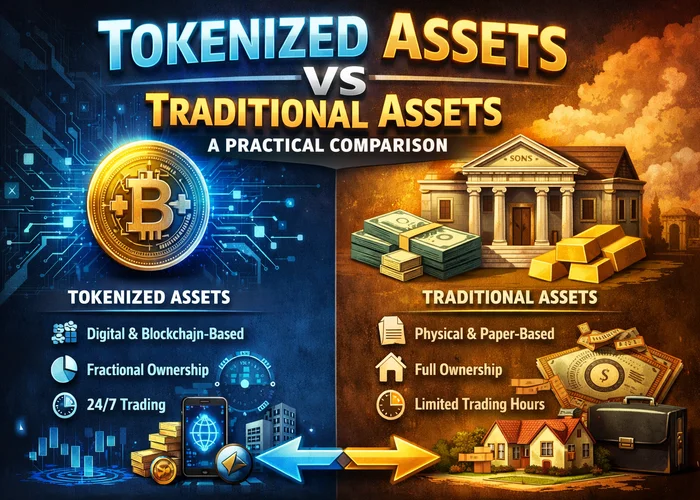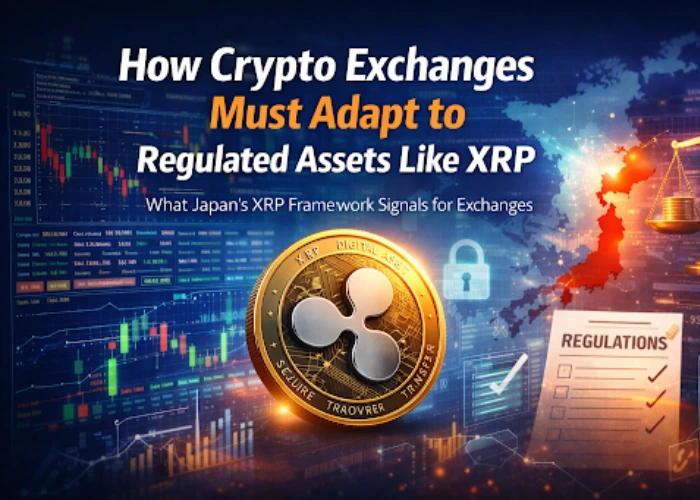In the evolving world of cryptocurrency, peer-to-peer (P2P) crypto exchanges are emerging as a game-changing solution. Unlike traditional exchanges, P2P platforms eliminate intermediaries, allowing users to trade directly with one another. This decentralized approach aligns with the core principles of cryptocurrency, fostering greater transparency, security, and autonomy.
The demand to create a P2P crypto exchange has surged as traders seek platforms that offer control and flexibility. Unlike centralized exchanges, which hold user funds and are prone to hacking, P2P exchanges enable direct wallet-to-wallet transactions. This not only enhances security but also minimizes transaction costs, making it an attractive option for traders worldwide.
One of the standout features of P2P crypto exchanges is their global accessibility. Traders can buy and sell cryptocurrencies without being restricted by geographical or regulatory barriers. Additionally, these platforms often support a variety of payment methods, catering to diverse user preferences. Entrepreneurs looking to enter the crypto space now have a lucrative opportunity to create a P2P crypto exchange that addresses these growing needs.
Furthermore, P2P platforms provide greater privacy, as user information is not centralized or stored on the exchange. Advanced features like escrow systems ensure secure transactions, fostering trust between parties. As the crypto market expands, traders and investors are increasingly gravitating toward platforms that offer both freedom and safety.
To thrive in the competitive crypto landscape, it’s essential to create a P2P crypto exchange that combines user-friendly interfaces with robust security features. This innovative approach is shaping the future of cryptocurrency trading, empowering individuals and businesses to trade confidently and efficiently.
P2P crypto exchanges are revolutionizing the way cryptocurrencies are traded, offering unparalleled benefits that align with the decentralized ethos of blockchain technology.

Market Potential: The Growing Demand for Peer-to-Peer Crypto Exchanges
The cryptocurrency industry is experiencing exponential growth, with peer-to-peer (P2P) crypto exchanges leading the charge. Unlike traditional platforms, P2P exchanges empower users with greater control and security, driving the demand for innovative solutions in this space. For entrepreneurs and businesses, now is the perfect time to create a P2P crypto exchange that caters to the evolving needs of global traders.
One of the most significant trends is the rise of decentralized ecosystems. Many companies are investing in Custom Cryptocurrency Development Solutions to build platforms that stand out in the competitive crypto market. These solutions allow for tailored features like advanced security protocols, multi-currency support, and user-friendly interfaces, making P2P exchanges a preferred choice for traders worldwide.
In addition to exchanges, the market is seeing a surge in interest for digital assets. Businesses looking to create a DEX coin from scratch can leverage Custom Crypto Coin Development services to launch unique tokens that complement their platforms. Such initiatives not only attract investors but also add liquidity to the ecosystem.
Working with a reputed Crypto Coin Development Company ensures that entrepreneurs can seamlessly integrate advanced technologies into their P2P platforms. This is crucial as traders increasingly value decentralized exchanges for their lower fees, enhanced privacy, and resistance to censorship. By addressing these preferences, businesses can establish a strong foothold in the market.
To thrive in this dynamic industry, it’s essential to create a P2P crypto exchange that offers robust functionality and aligns with user expectations. Coupled with the ability to create a DEX coin from scratch, businesses can unlock immense opportunities for growth and innovation. With the support of specialized development services, the future of P2P crypto exchanges looks incredibly promising.
Understanding P2P Crypto Exchanges: Features and Benefits
Peer-to-peer (P2P) crypto exchanges are reshaping the cryptocurrency trading landscape, offering a decentralized approach that eliminates intermediaries and prioritizes user control. Entrepreneurs looking to capitalize on this booming industry should explore how to create a P2P crypto exchange to meet the growing demand for secure, user-friendly platforms.
One of the standout features of P2P crypto exchanges is the direct interaction between buyers and sellers, ensuring transparency and lower transaction fees. Unlike centralized platforms, these exchanges provide enhanced privacy and reduce risks associated with single points of failure. By leveraging these benefits, businesses can successfully start a white-label cryptocurrency exchange that attracts a broad audience of traders seeking efficiency and security.
For those aiming to expand their platform’s potential, integrating token creation is a game-changer. The ability to create your own token or even create a DEX coin from scratch offers businesses a unique value proposition. Tokens can be used for transactions, rewards, or governance, making them essential for fostering user engagement and liquidity within the ecosystem.
Another exciting avenue is to create a white-label cryptocurrency exchange, enabling businesses to launch a fully customizable platform quickly. This solution provides a cost-effective way to enter the crypto market while offering features like multi-currency support, escrow services, and advanced security measures.
While centralized platforms remain a part of the ecosystem, collaborating with a Centralized Crypto Exchange Development Company ensures that businesses can offer hybrid solutions catering to both traditional and decentralized traders.
In today’s competitive landscape, creating a robust P2P platform is the key to long-term success. Whether you aim to create a P2P crypto exchange, launch a custom token, or offer a white-label solution, embracing innovative features and benefits can position your business as a leader in the crypto industry.
Key Components of a Successful P2P Crypto Exchange Platform
Building a successful peer-to-peer (P2P) crypto exchange platform requires a well-planned structure and innovative features that cater to the needs of modern cryptocurrency traders. Entrepreneurs aiming to create a P2P crypto exchange must focus on these key components to ensure user satisfaction and business success.
One critical component is a robust security framework. Advanced encryption, two-factor authentication, and escrow mechanisms are essential to building trust among users. These features not only safeguard transactions but also attract a loyal user base. Collaborating with a reliable Centralized Crypto Exchange Development Company can help integrate these security measures efficiently.
Another essential feature is seamless token functionality. The ability to create your own token allows platform owners to introduce unique rewards, governance models, or transaction methods, giving their exchange a competitive edge in the market. This capability further aligns with the trend of hybrid platforms blending centralized and decentralized exchange benefits.
As the industry evolves, staying competitive also involves learning from the Top 10 Crypto Exchange Development Companies in 2025, which often set benchmarks for innovation. Their practices can provide valuable insights into features, usability, and compliance.
For those new to the market, understanding how to open a crypto exchange platform in 5 simple steps simplifies the process. Start with market research, choose the right development partner, implement core features, test the platform rigorously, and finally, launch with a strong marketing strategy.
Lastly, offering comprehensive cryptocurrency exchange development services ensures your platform remains adaptable to changing market needs. By integrating advanced tools and user-friendly features, businesses can stay ahead in this fast-paced industry.
To succeed, entrepreneurs must create a P2P crypto exchange that prioritizes user security, flexibility, and innovation while leveraging the latest development trends and solutions.

Step-by-Step Guide to Creating a P2P Crypto Exchange
The rise of decentralized finance has paved the way for innovative solutions like peer-to-peer (P2P) crypto exchanges. For entrepreneurs seeking to create a P2P crypto exchange, understanding the step-by-step process is crucial to building a platform that stands out in the competitive market.
Market Research and Planning
Begin by analyzing industry trends and studying the Top 10 P2P Crypto Exchange Platforms in 2024 to identify the features and functionalities that attract users. This insight will help you design a platform tailored to user needs while incorporating unique selling points.
Choose the Right Development Partner
Collaborate with the Best Cryptocurrency Exchange Development Company for Startups to ensure access to cutting-edge technology, experienced developers, and industry compliance standards. A skilled partner can help streamline the development process.
Design and Features Integration
Focus on user-centric design and integrate essential features such as secure wallets, escrow mechanisms, and multi-layered authentication. A P2P exchange must offer seamless matching of buyers and sellers with low transaction fees.
Development and Scalability
To address growing user demands, prioritize scalability from the beginning. Learning how to build a scalable cryptocurrency exchange platform ensures your exchange can handle increased trading volume without compromising performance or security.
Testing and Compliance
Rigorous testing is essential to identify and resolve bugs. Additionally, ensure compliance with regulatory standards in your target regions to build user trust.
Launch and Marketing
Once developed, market your exchange effectively. Highlight its unique features and emphasize the security and user experience it offers.
By following these steps, businesses can successfully create a P2P crypto exchange that not only meets market demands but also remains scalable and competitive in the evolving cryptocurrency landscape.
Technology Stack Required for Developing a P2P Crypto Exchange
Developing a robust and efficient peer-to-peer (P2P) crypto exchange requires a carefully selected technology stack. This ensures the platform is secure, scalable, and delivers an excellent user experience. To successfully create a P2P crypto exchange, it’s crucial to use advanced tools and technologies tailored to meet the platform’s requirements.
Blockchain Technology
The foundation of any P2P crypto exchange is blockchain. Platforms like Ethereum and Binance Smart Chain offer smart contract functionalities for seamless trading and dispute resolution.
Programming Languages
Languages like Python, JavaScript, and Solidity are essential for back-end development. They support smart contract creation and provide the foundation for transaction processes and data handling.
Database Management
Use databases such as MongoDB or PostgreSQL to securely store and manage user data, trading records, and wallet information.
Frontend Frameworks
Frontend frameworks like React.js or Angular provide a responsive and intuitive user interface, enhancing user engagement and satisfaction.
Security Features
A critical aspect of creating a P2P crypto exchange is integrating advanced security measures like two-factor authentication (2FA), end-to-end encryption, and distributed denial-of-service (DDoS) protection.
APIs and SDKs
APIs for payment gateways, trading functionalities, and KYC (Know Your Customer) verification streamline the development process and enhance functionality.
When planning the development, it’s also essential to consider the financial aspect. How much does it cost to start a crypto exchange in 2025? The cost varies depending on platform complexity, features, and development team expertise. Partnering with the best company for crypto exchange services ensures efficient resource allocation and top-notch solutions.
By leveraging the right technology stack and expertise, businesses can efficiently create a P2P crypto exchange that meets market demands while ensuring security and scalability.

Essential Security Features to Protect Your P2P Crypto Exchange
Security is paramount when building a peer-to-peer (P2P) crypto exchange to ensure user trust and protect assets. To create a P2P crypto exchange, it’s vital to integrate robust security features that safeguard the platform against cyber threats and vulnerabilities.
End-to-End Encryption
Implementing encryption ensures that all communications, transactions, and data exchanges remain private and secure. This is crucial for both traders and administrators.
Two-Factor Authentication (2FA)
Adding a second layer of authentication enhances account security by requiring users to verify their identity through OTPs or biometric methods.
Multi-Signature Wallets
Multi-signature functionality ensures that transactions are approved by multiple parties before execution, providing an extra layer of security for funds.
Anti-DDoS Protection
A Distributed Denial of Service (DDoS) attack can disrupt services and compromise user data. Anti-DDoS measures ensure uninterrupted platform performance.
KYC and AML Compliance
By integrating Know Your Customer (KYC) and Anti-Money Laundering (AML) procedures, exchanges can identify and verify users, reducing fraud risks.
Smart Contract Audits
For platforms that plan to create a DEX coin from scratch, regular smart contract audits are essential to eliminate vulnerabilities and ensure seamless operations.
Security is also a critical factor in related services like Custom Crypto Coin Development services and Custom Cryptocurrency Development Solutions, ensuring a trustworthy ecosystem. Whether you aim to create your own token or partner with a Crypto Coin Development Company, prioritizing security builds user confidence.
To successfully create a P2P crypto exchange, investing in advanced security measures and constant monitoring is essential for protecting user data and digital assets in an increasingly competitive market.
What are the legal Considerations for P2P Crypto Exchanges?
Building a peer-to-peer (P2P) crypto exchange comes with unique legal challenges that must be addressed to ensure compliance with regulatory frameworks. If you’re planning to create a P2P crypto exchange, understanding these legal considerations is crucial to avoid penalties and establish a trustworthy platform.
Regulatory Compliance
The first step is understanding and adhering to cryptocurrency regulations in the regions where the exchange will operate. Laws surrounding cryptocurrencies vary significantly across countries, with some requiring licensing for exchange operations, while others impose restrictions or outright bans.
Anti-Money Laundering (AML) and Know Your Customer (KYC)
Governments worldwide enforce AML and KYC regulations to combat illicit activities. To create a P2P crypto exchange, integrating a robust KYC process ensures proper identification and verification of users. Additionally, implementing AML protocols helps monitor and report suspicious transactions.
Data Protection and Privacy
Compliance with data protection laws, such as the GDPR in Europe, is essential. These regulations mandate how user data should be collected, stored, and protected. Ensuring data privacy builds trust and safeguards against legal disputes.
Tax Compliance
Cryptocurrency transactions are often subject to taxation. Operators of P2P exchanges must implement systems to comply with tax reporting requirements in various jurisdictions.
Intellectual Property
To avoid legal disputes, ensure that all proprietary software, trademarks, and branding used in your P2P exchange platform are appropriately licensed or owned by your organization.
Legal Disclaimers and User Agreements
Drafting comprehensive terms of service and legal disclaimers is essential. These documents outline user rights and responsibilities while protecting the platform from liability.
Successfully creating a P2P crypto exchange involves navigating complex legal landscapes. By addressing these considerations proactively, you can establish a compliant, secure, and reliable platform for global cryptocurrency trading.
How to Monetize P2P Crypto Exchanges?
Monetizing a peer-to-peer (P2P) crypto exchange requires strategic planning and a deep understanding of revenue models that align with user needs and market trends. If you aim to create a P2P crypto exchange, it’s crucial to implement effective monetization strategies to ensure long-term profitability and sustainability.
Transaction Fees
Transaction fees are a primary revenue stream for P2P crypto exchanges. Charging users a small percentage or a fixed fee for each trade conducted on the platform can generate consistent income. Ensure your fees are competitive to attract more users while maintaining profitability.
Listing Fees
When you create a P2P crypto exchange, offering cryptocurrency projects the opportunity to list their tokens on your platform can be lucrative. Charging listing fees allows projects to gain visibility while you earn revenue.
Premium Features
Introduce premium subscription plans that provide users with advanced features, such as priority customer support, detailed analytics, or faster transaction processing. This tiered approach can cater to different user segments and increase revenue streams.
Advertisement and Sponsorship
Integrating targeted advertisements on your platform can be a non-intrusive way to generate revenue. Sponsorships from blockchain projects or crypto service providers can also bring in additional income.
Staking and Lending Services
By incorporating staking and crypto lending options, users can earn rewards while the platform takes a percentage of the returns as revenue. This strategy can enhance user engagement and attract more users.
Affiliate Programs
Launching an affiliate program rewards users for bringing in referrals. While this requires upfront investment, it can significantly grow your user base and increase transaction volume.
When you create a P2P crypto exchange, combining these strategies ensures diversified income sources, helping you thrive in the competitive cryptocurrency trading market.

Challenges in Building a P2P Crypto Exchange and How to Overcome Them
Building a peer-to-peer (P2P) crypto exchange is a complex process that comes with several challenges. However, with careful planning and the right strategies, you can successfully create a P2P crypto exchange that stands out in the competitive market.
- Ensuring Robust Security
Security is a top concern for users engaging in cryptocurrency transactions. Cyberattacks, phishing, and fraud can undermine trust. To address this, integrate features like two-factor authentication, end-to-end encryption, and secure wallets. Regularly conduct security audits to identify vulnerabilities and reinforce protection mechanisms.
- Achieving Regulatory Compliance
Navigating the evolving regulatory landscape is a challenge for P2P crypto exchanges. Compliance with anti-money laundering (AML) and know-your-customer (KYC) requirements is crucial. Collaborate with legal experts to ensure your platform adheres to local and international laws. Establish transparent policies to gain user trust and avoid legal complications.
- Building a User-Friendly Interface
Users expect a seamless and intuitive experience. A complex interface can drive users away. Invest in a responsive and simple design that caters to beginners and experienced traders alike. Regular user feedback can guide improvements.
- Managing Liquidity
Liquidity is essential for smooth trading. Without sufficient liquidity, users may face delayed transactions or unfavorable rates. Collaborate with liquidity providers or integrate APIs to ensure a steady flow of assets.
- Competition in the Market
The cryptocurrency exchange market is highly competitive. To create a P2P crypto exchange that stands out, offer unique features such as multi-currency support, low fees, or advanced analytics tools. A strong marketing strategy can also boost visibility.
By proactively addressing these challenges, you can successfully create a P2P crypto exchange that meets user needs while ensuring security, compliance, and scalability.
Best Practices for Launching and Marketing Your P2P Crypto Exchange
Launching and marketing a Peer-to-Peer (P2P) crypto exchange requires a strategic approach to ensure success in a competitive market. If you want to create a P2P crypto exchange, focusing on security, user experience, and marketing is essential.
First, prioritize robust security measures to establish trust among your users. Implement features like two-factor authentication (2FA), end-to-end encryption, and escrow services to protect transactions. Ensuring that your platform complies with relevant regulations will also enhance credibility and appeal to users concerned about legality and transparency.
Next, optimize the user experience by making the platform intuitive and accessible. The simpler the process of buying and selling cryptocurrency, the more likely users will engage with your exchange. Make sure the design is user-friendly, mobile-compatible, and provides real-time notifications. Offering customer support and educational resources will help users navigate the platform with ease.
Once you create a P2P crypto exchange, marketing becomes crucial. Building a strong online presence across social media platforms such as Twitter, Reddit, and Telegram can help reach crypto enthusiasts and potential traders. Additionally, offering referral bonuses, rewards, or incentives to early users can drive initial traffic to your platform. Engaging with influencers and crypto communities through partnerships can also boost your credibility.
Finally, focus on localizing your exchange for different regions. Offering multiple languages, currency options, and payment methods will help you reach a global audience, making your P2P crypto exchange accessible to users worldwide.
By implementing these best practices, you can successfully create a P2P crypto exchange that not only stands out in the market but also builds a loyal user base.

Conclusion: Transforming the Crypto Market with Your P2P Exchange
In conclusion, creating a P2P crypto exchange offers a unique opportunity to transform the cryptocurrency market by providing users with a decentralized, secure, and efficient platform for trading digital assets. As blockchain technology continues to reshape the financial landscape, P2P exchanges have emerged as a viable alternative to traditional centralized exchanges, empowering users with more control over their transactions and eliminating the need for intermediaries.
When you create a P2P crypto exchange, you are not just developing a platform but a thriving ecosystem that prioritizes security, user experience, and accessibility. The ability to directly connect buyers and sellers opens up opportunities for more inclusive participation in the global crypto market, particularly for individuals in regions with limited access to traditional financial services. With features like escrow services, dispute resolution, and robust security protocols, your platform can foster trust and transparency, which are essential for long-term success.
Moreover, creating a P2P crypto exchange allows you to tap into the growing demand for decentralized finance (DeFi) solutions. By focusing on user-centric features and a seamless trading experience, you can build a loyal customer base. Marketing your exchange through strategic partnerships, social media campaigns, and educational content will help establish your platform’s presence in the competitive crypto landscape.
Ultimately, the impact of creating a P2P crypto exchange extends beyond just facilitating cryptocurrency trading. It has the potential to drive innovation in the financial sector, empowering individuals with more freedom and control over their financial transactions. By offering a secure, decentralized platform, you are helping shape the future of the crypto market and contributing to the evolution of digital finance.
FAQs
- What is involved when you decide to create a DEX coin from scratch?
Creating a DEX (Decentralized Exchange) coin from scratch involves several key steps, including designing the coin’s consensus mechanism, developing the blockchain, and integrating decentralized features like smart contracts. You’ll need to engage with a custom crypto coin development service to help with coin creation, including the coding of the blockchain, and setting up its features such as privacy, speed, and scalability. Collaborating with a crypto coin development company can ensure your project is developed efficiently and securely.
- How can I create my own token?
To create your own token, you need to select a blockchain platform (like Ethereum, Binance Smart Chain, or others) that supports token creation. Use its smart contract functionality to design the token’s properties such as supply, name, and symbol. You can work with custom cryptocurrency development solutions providers who can guide you through creating a token tailored to your specific needs. These services ensure the token is designed for optimal performance and security.
- What are white-label cryptocurrency exchanges?
A white-label cryptocurrency exchange is a pre-built exchange platform that can be customized with your brand’s identity. These platforms provide a ready-made solution for businesses looking to start a white-label cryptocurrency exchange without building the platform from scratch. By leveraging the expertise of a cryptocurrency exchange development service, you can launch an exchange with unique features, saving on development costs and time.
- How do I choose the best cryptocurrency exchange development company for my startup?
When selecting the best cryptocurrency exchange development company for startups, look for a provider with experience, a solid portfolio, and expertise in both custom cryptocurrency development solutions and scalability. The company should also offer security features and regulatory compliance support, helping your platform stay secure and compliant. Look at the top 10 crypto exchange development companies in 2025 to narrow down your options and select a provider that aligns with your startup’s needs.
- How much does it cost to start a crypto exchange in 2025?
The cost to start a crypto exchange in 2025 depends on several factors, such as whether you opt for a custom-built platform or a white-label solution. A custom cryptocurrency exchange development company will typically charge more due to the tailored features and design. Costs can range from $30,000 to $100,000+, depending on your requirements. Additionally, ongoing costs for maintenance, security updates, and legal compliance should be factored in.
- What is the difference between a centralized crypto exchange and a decentralized exchange?
A centralized crypto exchange development company creates platforms where the exchange’s operator manages and controls the trading. In contrast, a decentralized exchange (DEX) operates without a central authority, allowing peer-to-peer trading. If you aim to create a DEX coin from scratch, you’ll need to focus on decentralization and security features, such as smart contracts and peer validation, to enable direct transactions between users without intermediaries.
- How to build a scalable cryptocurrency exchange platform?
To build a scalable cryptocurrency exchange platform, start by choosing the right technology stack and infrastructure that supports high traffic and a large number of transactions. You should also focus on optimizing the platform’s architecture to handle future growth. A custom cryptocurrency exchange development company can provide solutions like API integration, security protocols, and cloud infrastructure to ensure scalability, reliability, and performance even as your platform expands.








